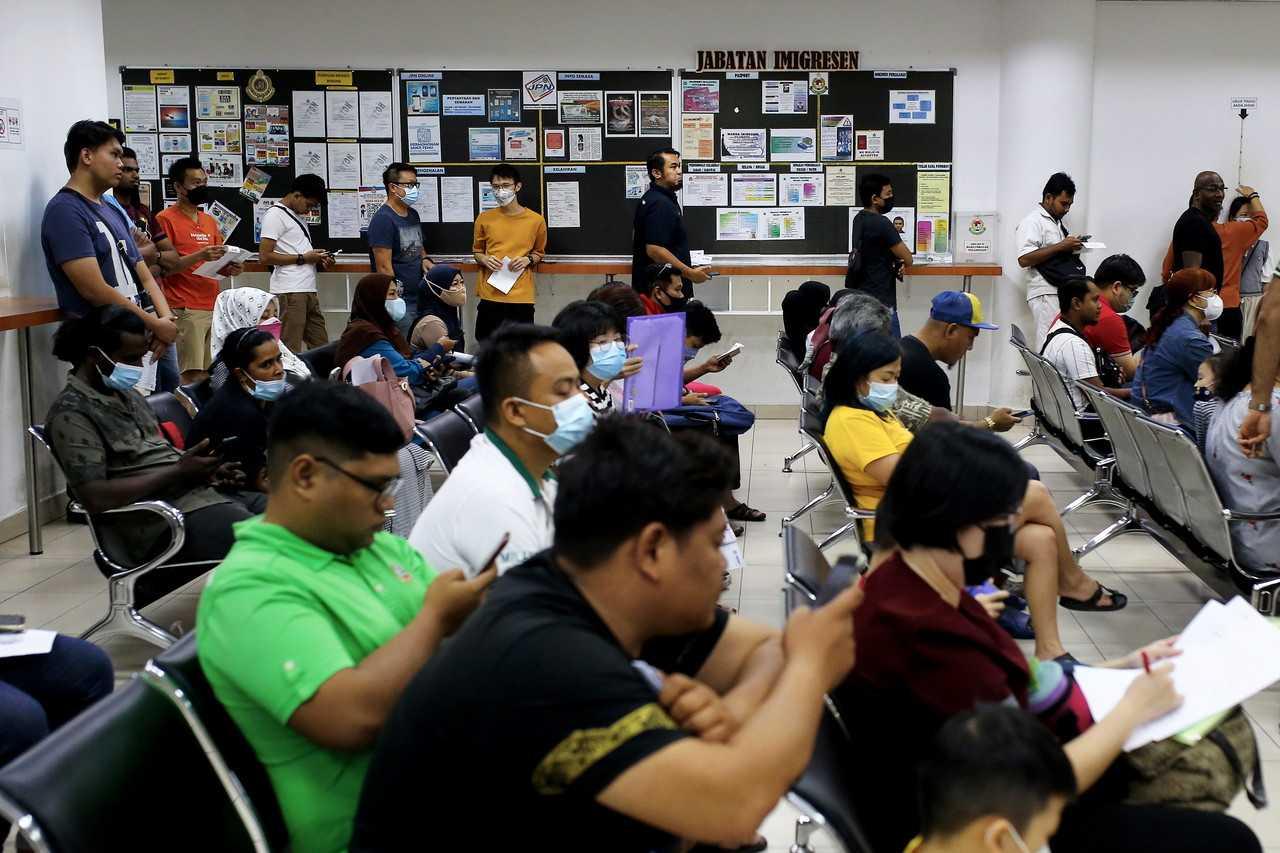Immigration to increase working days to tackle passport-related congestion
RM10 million has been allocated for overtime payment.
Just In
The immigration department is taking several measures to overcome the issue of congestion over passport-related matters, including increasing the number of working days, especially at offices experiencing significant congestion.
Home Minister Saifuddin Nasution Ismail said there were 20 passport offices facing high congestion: nine in the Federal Territory and Selangor, five in Johor, three in Perak, and one each in Melaka, Penang and Kedah.
He said RM10 million had also been allocated for overtime payment.
"Until today, we have issued nearly 2.5 million passports and from this number, 45% represent online applications.
"However, online passport applications will take a few days to complete, while 'walk-in' applications will be completed within a day," he said during the question-and-answer session at Dewan Rakyat today.
Saifuddin was replying to a question by Sh Mohmed Puzi Sh Ali (BN-Pekan) who asked what measures would be taken to overcome the problem of congestion over passport matters at the immigration department.
He also asked about the proposal to reinstate the "walk-in" passport application process.
Saifuddin also acknowledged congestion at immigration counters at Malaysia's main entry points, especially KLIA, saying his ministry was working on ways to resolve the problem.
As an immediate solution, he said the auto gates at KLIA that only open for Malaysians will be opened to foreigners as well, especially those coming from low-risk countries such as Singapore and Brunei.
He said this in response to a supplementary question from Mumtaz Md Naw (PN-Tumpat) on whether the government was aware of the congestion at the immigration counters at the country's main entrance points.
Subscribe to our newsletter
To be updated with all the latest news and analyses daily.
Related Articles
Most Read
No articles found.
